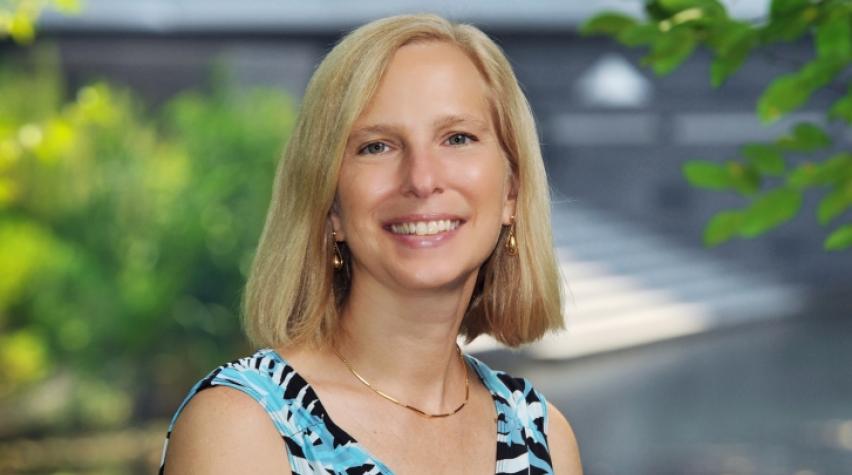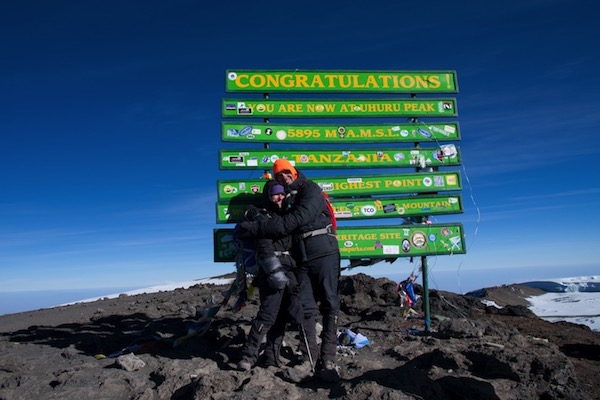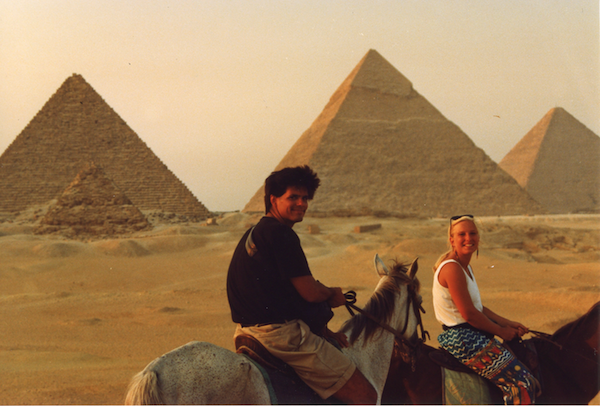
As the staff liaison for AIChE's LGBTQ+ & Allies Initiative, I'm thrilled and proud to introduce long-term AIChE volunteer Stephanie Farrell as our first Featured Ally of our LGBTQ+ professionals series. Stephanie has been an AIChE member for 17 years and is professor and founding chair of Experiential Engineering Education at Rowan University (USA) and the 2018-19 president of the American Society for Engineering Education. With Stephanie being the first of (hopefully) many allies to be featured, this interview series will be renamed Featured LGBTQ ChemEs & Allies.
We're excited to have Stephanie work on programming (along with Tony Butterfield and Gayle Gibson) for the 2018 AIChE Annual meeting. Be sure to make time to attend LGBTQ+ Inclusion in Engineering Workshop and Panel on October 30 in Pittsburgh. Topics include basic LGBTQ+ terminology, managing bias and microaggressions, and more. Leaders from industry and academia — including The Dow Chemical Company CEO Jim Fitterling — will offer perspectives. Both allies and LGBTQ+ people are invited. Now, let's learn more about Stephanie.
Tell us a bit about your job and your job responsibilities. What’s a typical day at work?
As the founding department chair of Experiential Engineering Education, my primary responsibility is to lead the department that was created to serve as the keeper of the undergraduate mission in the first and second years of the engineering curriculum. Since we are a new department, I am focusing a lot of energy on the recruitment of new faculty and supporting their development to become outstanding teachers and scholars. In my current role, I am not teaching classes, but I continue to have very meaningful interactions with students through academic advising and as the oSTEM student chapter leader.
I also maintain a research program focusing on inductive pedagogy, spatial visualization skills, and diversity and inclusion in engineering.
Can you recall an experience or the first experience when you identified as an ally of LGBTQ+ people?
The ally experience that is most important to me personally is my 32-year friendship with my friend Jim, whom I met in high school in 1981. I learned very early in our relationship that he was gay, but it would be many years before he came out to most friends or family members. I always tried to be the best supporter I could be, although it would be years before I became familiar with the term “ally.” I just followed my instincts and did what felt right.
I spoke up when I heard homophobic comments, I learned about LGBTQ+ issues and concerns so I would have a better understanding of what he was going through, and I embraced LGBTQ+ culture and community.
My first two decades as an ally was fairly private, through my friendship with Jim and other LGBTQ friends.
In the workplace (industry or academic), what has been your experience of working with LGBTQ+ chemical engineers? Can you recall a specific experience where you showed support or welcomed an LGBTQ+ engineer? If so, what was that like?
Safe Zone (LGBTQ+ ally training workshops) emphasize the importance of being visible as an ally. After completing the training, I displayed a Safe Zone sticker on my office door and put a Safe Zone statement on my syllabus.
One memorable example that was impactful occurred on the first day of class after I reviewed the syllabus which included a newly added Safe Zone statement. Within an hour after class, one of the students sent me an email to tell me how meaningful it was to him as an LGBTQ+ student to hear a Safe Zone ally statement from a professor on the first day of class in his first year at Rowan! It felt so good to realize that my small gesture had made such a difference to this student — and possibly to other students in the class as well.

Stephanie and husband Peter at the top of Kilimanjaro (5,895 m)
Do you know people in the profession who struggle with being out in today's workplace?
Yes, one struggle I’ve discussed with LGBTQ+ faculty at several different institutions is whether or not to be out to their students. They express that LGBTQ+ students would benefit from knowing they have an LGBTQ+ professor, but they are not comfortable taking the risk of being out at work.
The fraction of LGBTQ individuals who are comfortable being out in the workplace is an indicator of the inclusiveness of the environment. People who decide to come out at work often describe the experience as liberating and a huge relief. Even though recent years have seen progress toward LGBTQ acceptance, it is important to remember that there is still significant risk involved in coming out, and the decision to do so is a very personal one.
Does your organization do anything to foster inclusivity for LGBTQ+ people? If so, how do they engage allies?
Yes! In the last few years, we have made a strong effort to improve the climate for LGBTQ+ students at Rowan by establishing a center to support students with physical space and ongoing educational/community-building events, counseling through the Wellness Center with experts in LGBTQ+ issues, and the development and implementation of a Lived Name Policy. In fact, we were recently ranked one of the Most LGBTQ-Friendly Colleges in the country.
We have several active LGBTQ+ student groups on campus, the most recent addition being our oSTEM student chapter. oSTEM is a national society dedicated to educating and fostering leadership for LGBTQ+ communities in the STEM fields. Our oSTEM chapter was launched in 2017 and has grown to 85 students in one academic year. I was deeply honored when the oSTEM students asked me to be their founding faculty advisor!
Are there instances when you have felt at risk when acting as an ally? If so, please elaborate.
I am aware that I have taken a risk by being visible as an ally and advocate for LGBTQ+ in engineering on a national level and engaging in scholarship in this area. But I believe that this work is important for our profession to attract and retain talent; we cannot afford to lose talent or productivity due to an unwelcoming climate. Even more important to me personally, I believe that it is the right thing to do.
Are there examples where you were able to advocate as an ally in a way that was especially effective in educating bystanders (even if it might not have changed the mind of a person you needed to challenge)?
Besides being involved in AIChE, I am also very active in the American Society for Engineering Education (ASEE), and I am currently serving as president of that organization. A few years ago, a member of ASEE published a letter in our magazine containing assertions that perpetuated misconceptions about LGBTQ+ individuals. I helped to organize the response of the organization’s diversity committee. We realized that this was a teaching moment, an opportunity to educate members about LGBTQ+ individuals and about LGBTQ+ issues and concerns in our profession.
The committee published a response in the following issue that addressed the inaccurate assertions, and we emphasized ASEE’s commitment to creating an inclusive environment for all individuals in our profession. We also developed a series of Safe Zone Ally Training workshops and offered them during every time slot at the next annual conference. Since then, we have expanded this effort with support from the National Science Foundation, and since 2015 we have trained over 1,000 Safe Zone participants.
Do you have any suggestions of what allies of LGBTQ+ people can do to help make their professional climate more safe, welcoming, and inclusive for diverse engineers?
Yes! I lead a national Community of Practice for LGBTQ+ Equality in Engineering, and together we came up with “49 Ways To Be An Ally.” We did this to honor the 49 victims of the Pulse Nightclub massacre in June 2016. You can find the document on our website here.
My favorite tips for getting started as an ally are:
- Participate in a Safe Zone Ally training workshop
- Learn and use the correct terminology
- Check your assumptions about sexual orientation and gender identity
- Be visible as an ally. Display your Safe Zone sticker, an ally badge or pride flag.
- Attend LGBTQ+ events such as a meeting of your college’s oSTEM student chapter, your company’s LGBTQ+ employee resource group, or a Pride month event at your organization.

Stephanie with friend Jim in Giza
In your opinion, why is AIChE's LGBTQ+ & Allies initiative an important one?
The LGBTQ+ & Allies initiative promotes inclusion and diversity in our profession. This is important because we want to attract and retain talent in chemical engineering, and we should have an environment where everyone can contribute to their fullest potential.
How could AIChE help you to fulfill your professional and personal goals?
That’s easy to answer since one of my professional goals is to create a more welcoming and inclusive environment for LGBTQ+ individuals! The LGBTQ+ & Allies initiative will create educational opportunities, and I hope that I will be able to contribute by sharing what I have learned as an ally and as a scholar in this area. The LGBTQ+& Allies network is a fantastic space where I can learn more about workplace issues and best practices for promoting LGBTQ+ inclusion.
Tell us about your personal life.
My husband, Peter, and I have been together for 24 years, and Philadelphia has been our home for 20 years. We share our love and our life with our 14-year-old daughter, Phoebe. We love to travel and have had amazing experiences in countries all over the world. One particular favorite experience was climbing Mt. Kilimanjaro with Peter. During this week-long expedition with friends, we hiked through five climate zones, from tropical rainforest to arctic, and three altitude zones up to 5,895 m. AIChE members will appreciate that the range of atmospheric pressure, relative humidity, and temperature on the mountain lends itself to an extravaganza of material and energy balance examples! Phoebe was too young to climb Kili with us, but the following year when she was 9, she climbed her first active volcano, Gunung Batur in Bali! Another exciting family adventure we shared was living for a year in Dublin, where Phoebe completed 5th class.
Are there any LGBTQ+ inspirations, role models, or moments in history that are important to you?
Living in Ireland as the country debated the Marriage Equality Referendum was an exhilarating and inspiring experience for me. I watched firsthand the transformation of this tiny country from supposedly “irreformable” to exuberantly proud to be the first country in the world to guarantee marriage equality as a constitutional right. The marriage equality campaign was successful because it aimed to make things personal rather than political and local rather than national. Instead of demanding rights, equality campaigners won voter’s hearts individually through a grassroots effort. Activists built solidarity with allies — parents, grandparents, families, and friends. One door at a time, the people of Ireland changed their minds about marriage equality by changing their understanding of LGBT people. The question of marriage equality was no longer political, it was personal.
Do you have a story about an effective or inspirational professional ally or LGBTQ+ person you’d like to share? Or a personal story related to an LGBTQ+ friend or family member?
From our late teens through our forties, my best friend Jim and I shared so many wonderful experiences and were a really important part of each other’s lives. We competed in national swimming competitions, traveled the globe, became vegetarian, swam in the Nile, studied Arabic, and attended dozens of family events together. In his professional life, Jim was an attorney who served the LGBTQ+ community through his tireless pro bono work. He often represented LGBTQ+ asylum seekers fleeing persecution in their home countries. Jim died unexpectedly after a normal day at work a few years ago, and I miss him immensely. He was and always will remain an inspiration to me and a major influence on my life.
What’s your dream getaway?
Climbing Kilimanjaro again — but this time sleeping overnight in the crater at the top!
Do you have a favorite LGBTQ icon?
Ben Barres, acclaimed neurobiologist at Stanford University and first openly transgender scientist elected to the National Academy of Sciences. Dr. Barres spent much of his time advocating for gender equality in science, especially in the last decade of his life. Having lived and worked as a prominent scientist for over 40 years before his transition, he provided unique insight into how he was treated both as a man and as a woman in science and educated us about some of the challenges and biases that he had faced personally while presenting as a woman in the profession.
AIChE's Diversity and Inclusion Initiatives are supported by the AIChE's Foundation's Doing a World of Good Campaign.
To learn more about it, click here.
Attend Our Event
Don't miss the LGBTQ+ & Allies Inclusion in Engineering programming session at the upcoming Annual Meeting in Pittsburgh. Learn more
Interested in helping?
Are you an LGBTQ chemical engineer and AIChE member interested in sharing your story to help create awareness around diversity and inclusion? Are you an LGBTQ ally interested in helping with diversity and inclusion efforts? Send us a note at chenected@aiche.org with the subject "Diversity and Inclusion."


